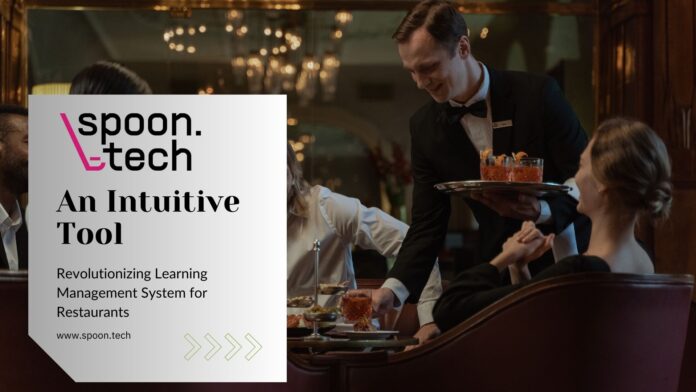Learning Management Systems (LMS) have become an essential tool for organizations across various industries, including the restaurant sector. In the fast-paced and dynamic world of restaurants, effective training and development are crucial for success. However, traditional LMS solutions often fall short when it comes to addressing the unique needs of restaurants. This blog post explores the challenges faced by restaurants with traditional LMS and introduces the concept of revolutionizing LMS specifically for the restaurant industry.
Challenges in traditional LMS for restaurants
1. Limited customization options: Traditional LMS platforms often lack flexibility, making it difficult for restaurants to tailor the training content and delivery methods to their specific needs.
2. Lack of industry-specific content: Generic training modules may not effectively address the unique requirements of the restaurant industry, including food safety, customer service, and compliance with regulations.
3. Inefficient tracking and reporting mechanisms: Traditional LMS solutions may not provide robust tracking and reporting features, hindering the ability to monitor employee progress, identify areas of improvement, and assess the effectiveness of training programs.
4. High costs and complexity of implementation: Implementing and maintaining a traditional LMS can be a costly and complex process, especially for smaller restaurants with limited resources.
Understanding the needs of the restaurant industry
To revolutionize the LMS for restaurants, it is crucial to understand the specific needs of the industry:
1. Fast-paced and dynamic nature: Restaurants operate in a highly dynamic environment, requiring training programs that can be quickly updated to adapt to changing trends, menus, and operational procedures.
2. Diverse training requirements: Different roles within a restaurant, such as front-of-house, back-of-house, and management, require specialized training to excel in their respective areas.
3. Compliance and food safety regulations: Restaurants must comply with strict regulations to ensure food safety, sanitation, and adherence to labor laws. An effective LMS should support training programs that address these compliance requirements.
Key features of a revolutionized LMS for restaurants
To address the challenges faced by traditional LMS, a revolutionized LMS for restaurants should offer the following key features:
1. Customizable content creation and management: Restaurants should have the ability to create and manage their own training content, including videos, quizzes, and interactive modules, to align with their specific needs and branding.
2. Industry-specific training modules and resources: The LMS should provide a comprehensive library of industry-specific training materials, covering topics such as food safety, customer service, menu updates, and management skills.
3. Mobile accessibility and microlearning options: To accommodate the busy schedules of restaurant staff, the LMS should be accessible on mobile devices, allowing employees to access training materials anytime, anywhere. Microlearning options, such as bite-sized modules and videos, enable quick and effective learning during downtime.
4. Advanced tracking and reporting capabilities: The LMS should offer robust tracking and reporting features, allowing restaurant managers to monitor individual and team progress, identify knowledge gaps, and measure the impact of training programs.
5. Integration with existing systems: Integration with other restaurant systems, such as point-of-sale (POS), scheduling, and human resources (HR), streamlines administrative processes and ensures a seamless training experience.
Benefits of a revolutionized LMS for restaurants
Implementing a revolutionized LMS for restaurants can bring several benefits:
1. Improved training efficiency and effectiveness: Customizable content and targeted training modules ensure that employees receive relevant and engaging training, leading to better knowledge retention and improved job performance.
2. Consistent and standardized training across locations: A revolutionized LMS enables consistent training delivery across multiple restaurant locations, ensuring that employees receive the same quality of training regardless of their geographical location.
3. Enhanced employee engagement and motivation: Interactive and mobile-accessible training materials, along with gamification elements, increase employee engagement and motivation, leading to a more productive workforce.
4. Cost savings and reduced administrative burden: By digitizing training materials and automating tracking and reporting processes, a revolutionized LMS reduces the need for printed materials, manual record-keeping, and administrative overheads.
5. Compliance with regulations and food safety standards: Industry-specific training modules ensure that employees are well-informed about compliance requirements, reducing the risk of violations and enhancing food safety practices.
Future trends and developments in LMS for restaurants
The future of LMS for restaurants holds exciting possibilities:
1. Artificial Intelligence and machine learning in LMS: AI can take LMS to the next level and make lives easier for both managers and employees. For instance, leading LMS brand spoon.tech uses AI to automatically convert pre-existing training documents into interactive training programs and exercises, significantly reducing the manual work for managers.
2. Gamification and interactive learning experiences: Gamified training modules and interactive elements make learning more engaging, enjoyable, and effective for restaurant staff. An example of this is spoon.tech, which has interactive exercises like quizzes, arranging in the correct order, find the missing elements, true-false exercises. These exercises help users test their knowledge in a fun way, and completion of these gives points, which in turn enables employees to compete with their peers on a leaderboard. These interactive elements combined with points and leaderboards can make training feel like games, encourage healthy competition and keep employees engaged.
Revolutionizing the Learning Management System for restaurants is crucial for meeting the unique training needs of the industry. By addressing the challenges of traditional LMS, a revolutionized LMS provides customizable content, industry-specific resources, mobile accessibility, advanced tracking capabilities, and integration with existing systems. The benefits of a revolutionized LMS include improved training efficiency, consistency across locations, enhanced employee engagement, cost savings, and compliance with regulations. Staying up-to-date with LMS advancements and embracing the revolutionized LMS will enable restaurants to thrive in a competitive industry while ensuring their staff receives effective and tailored training.
If you found this blog helpful and want to implement a cutting-edge learning management solution at your restaurant, reach out to us by filling out this contact form. Alternatively, you can call us via phone on (+43 670 655 56 82) Or email us at hello@spoon.tech.





















